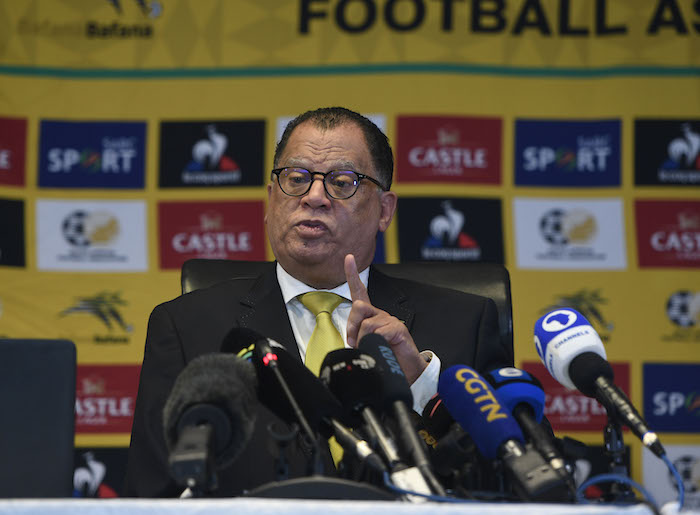The government has done their part, now it’s up to the PSL to get fans back in the stands, writes NKARENG MATSHE.
The announcement by President Cyril Ramaphosa that sporting venues could admit spectators to 50% of capacity was a huge relief to the sporting fraternity that arguably has suffered the most since Covid-19 struck two years ago.
In easing the lockdown regulations, Ramaphosa breathed life into long-suffering clubs and franchises across sporting codes, which gleefully took full advantage by immediately making more tickets available beyond the 2 000 which had been allowed since last year.
Cricket and rugby were the first to jump on the good news, the Tshwane-based Titans opened up Centurion Park to more fans to watch the final ODI between South Africa and Bangladesh on March 23.
Rugby franchises immediately took advantage by making more tickets to their games available, enticing fans by telling them even alcohol, questionably banned during certain stages of lockdown over the past 24 months, would also be on sale.
However, for football, there was no immediate indication if stadiums would be open, despite Ramaphosa’s announcement.
While the South African Football Association welcomed the move, calling it long overdue, the Premier Soccer League deferred discussions to the executive meeting and boldly told teams the ‘current protocols remain in place’.
These ‘protocols’ severely limit attendance at local soccer matches to no more than 200, with the league having never taken advantage of the 2 000 allotted by government. The reason for that was the PSL felt it was pointless to open gates for 2 000 people while clubs would have to carry security and ticketing costs they could not recoup.
But distressed clubs felt the league was too restrictive and should have allowed even just the 2 000 from as early as last year. ‘The reality is that 2 000 fans could have made a difference to our pockets,’ said one club official, who cannot be named as they are not authorised to speak on the matter.
‘Imagine if venues sold a thousand hospitality tickets for a big match, and the other half reserved for normal seats. That’s not a lot of money, but it is something.’
The PSL did allow 2 000 spectators to watch the MTN8 final between Cape Town City and Mamelodi Sundowns late last year. But, in an apparent sign the league was not overly concerned about the fans’ absence from games, all the tickets were given to PSL stakeholders.
At the time, the PSL reasoned it has a huge obligation to those stakeholders and sponsors. Not one ticket was put up for sale, as the two clubs and presumably the cellphone giant MTN, snatched them up to watch the cup final at Moses Mabhida Stadium.
Ramaphosa’s announcement, however, has brought about new hope among ordinary fans that they might finally be allowed to see their favourite teams play live again. It’s not only fans who are excited about this, though.
Businesses that built their revenue around crowds at venues sighed with relief, most notably Stadium Management SA, which manages four venues in Gauteng: FNB Stadium, Rand Stadium, Orlando Stadium and Dobsonvillle Stadium.
Bertie Grobbelaar, the chief executive of SMSA, revealed they’ve had to fork out over R30-million just to maintain the four venues. ‘The maintenance of the four venues, and I am only speaking about maintenance and electricity, not about running expenses like salaries, over the past 24 months we paid R32m. You can imagine how much we’ve lost if we include salaries and all other expenses,’ Grobbelaar told The Sowetan.
For a company that in the past hosted sell-out music festivals at FNB Stadium and the Soweto derby between Kaizer Chiefs and Orlando Pirates at least twice a year, the past two years have been decidedly miserable. It was so bad financially that rumours surfaced about SMSA being on the brink of liquidation.
‘SMSA rely solely on hosting events to make money and, for the past two years, they haven’t been able to do that,’ said a source close to the company.
‘Imagine a few years ago they had a sold-out Justin Bieber concert, they hosted the All Blacks v Springboks and many church services.
‘Suddenly, there was nothing. They have permanent staff and security guards who have to be there all the time to make sure the facilities are taken care of, the grass is cut, there’s maintenance.’
Grobbelaar refused to comment on the matter but expressed relief that a 90 000-seat stadium like FNB is now back in business. ‘It’s massively good news for us … and the total industry. The cleaners, the security guards, the informal traders and the whole industry are extremely happy.’



